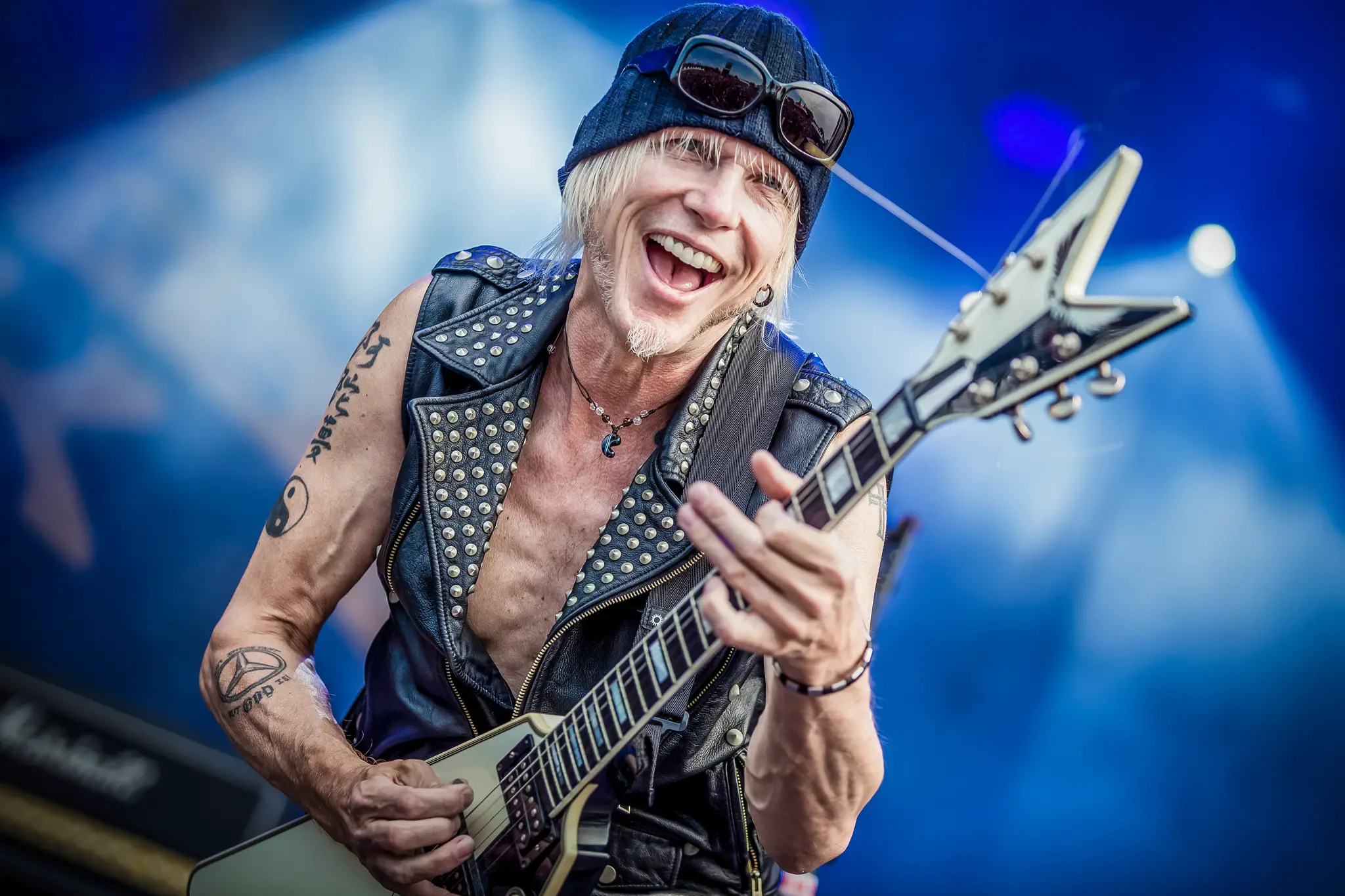
Image credit: Matthias Rethmann
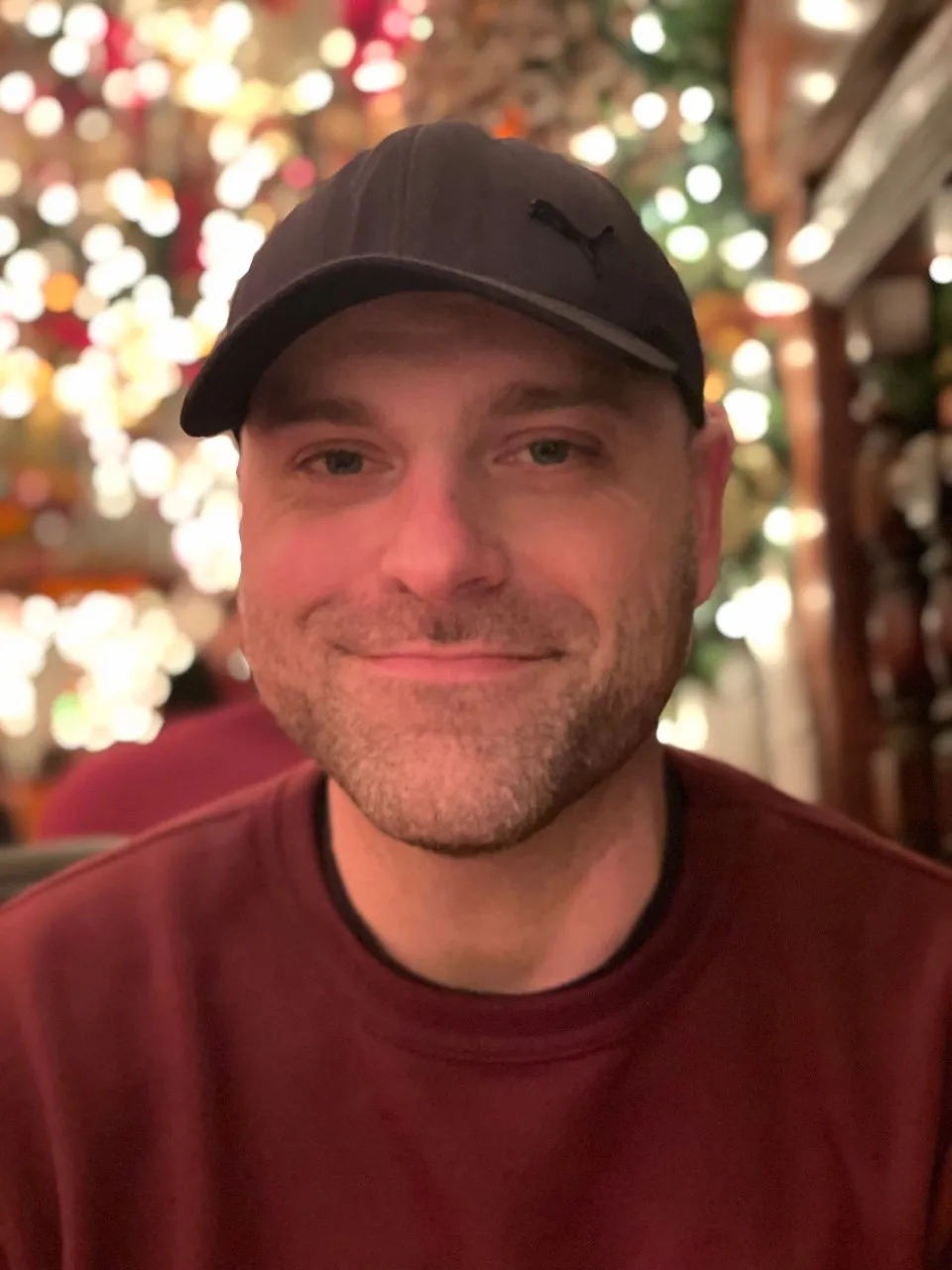
By Andrew Daly
[email protected]
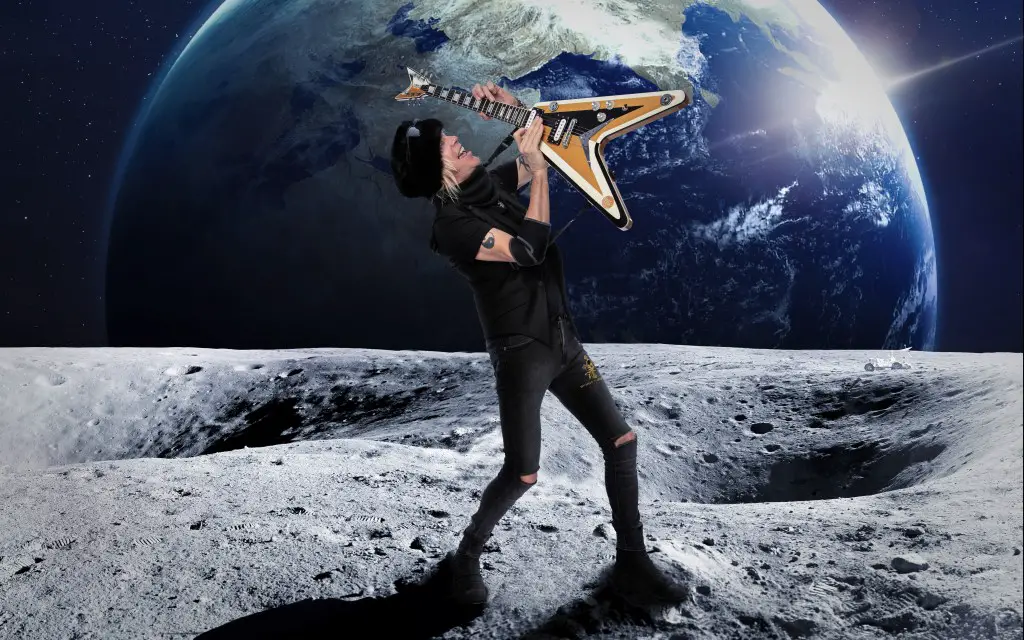
Some artists are born with an innate ability to create through a burning desire stoked by the visceral embers of unbridled creativity. These are artists who possess molten-lava-fueled aspirations to search the great wilderness we’ve come to know as rock ‘n’ roll.
In the case of incontestible guitar virtuoso, Michael Schenker, it’s that same desire which spurs him on to move mountains with his ferocious, insatiable licks which continue to drive the six-stringer to both create and release music at a relentless, breakneck pace.
Dating back to the early 70s, as a young teenager, Schenker joined legendary German heavy metal outfit, Scorpions. Soon after, Schenker began his ascension toward rock and metal immortality with the release of Lonesome Crow (1972), and Fly to the Rainbow (1974).
Never to be held down, or held back, Schenker sought new challenges with UK outfit, UFO. Schenker’s impact was both immediate, and readily apparent, as UFO released a string of classic records in Phenomenon (1974), Force It (1975), No Heavy Petting (1976), Lights Out (1977), Obsession (1978), and the monumental live release, Strangers in the Night (1979), an album which along with a few others, went on to redefine the very idea of the live album.
In 1979, the bone-crushing guitarist left UFO, and briefly rejoined the Scorpions for Lovedrive (1979), before entering a rare period of musical inactivity. If Michael Schenker had stopped then and there, his legacy would have been firmly cemented, but never one to rest on his laurels, Schenker went on to form his critically and commercially acclaimed Michael Schenker Group, which after forty-plus years, is still going strong.
I recently sat down with the mythological axe-slinger for a chat regarding, among other things, the Michael Schenker Group’s latest effort, Universal, his retrospective thoughts on 1982’s Assault Attack, nearly joining Ozzy Osbourne, an Aerosmith audition gone wrong, and a whole lot more.
Andrew:
Michael, thanks for taking the time to sit down with me. Let’s dive in. The title of the new record is Universal. What are the origins there?
Michael:
Well, it goes together with the album cover, and the album cover happened first. It was a sketch that I did a few years ago. I had the idea of sketching a spaceship with my MSG logo, the guitar, and the spaceship flying through space, and I showed the sketch to the record company, they liked it, and they modified it. When you look at the album cover, your mind goes to the idea of the universe, and so I came up with “Universal.” To me, the title also has another meaning to it, and that’s the idea that music is universal. It’s a universal language, at least the music, not the lyrics, but the music. And maybe in the future somewhere, we will be flying around doing concerts on different planets. [Laughs].
Andrew:
Walk me through your process as you begin to write and record a record.
Michael:
Well, I don’t write the lyrics, I only write the music. I write the music at home, as I have been for the past fifty years. I don’t like writing lyrics, I just like to do music. When I come to the studio, my co-producer, he does not even know what I’m going to be recording, so as I put the songs down, my co-producer immediately starts writing some lyrics and making some vocal melodies. And the next morning, when I come from the hotel, he plays me what he did the night before, and then I tell him if I like it or not, and then we go from there. So, everything kind of starts shaping up step by step as we go.
Andrew:
“Calling Baal/A King Has Gone,” is a great track, which is a tribute to Ronnie James Dio, right? If you can, speak on the origins of that track.
Michael:
So, how that came about, again, it was another piece of music that I wrote, and I recorded it. The next morning, I came back from the hotel, and Michael Voss said to me, “I’ve got these lyrics that about Ronnie James Dio,” and I said, “Great! My favorite rock singer!” Then, Michael Voss says to me, “I have an idea, how about asking the Rainbow guys that used to play Ronnie if they wanted to help us make a tribute?” And so I said to him, “If you can get it done, go ahead.” So, he called them, they agreed, and they were fantastic. We got Bob Daisley, and then Tony Carey, who did an excellent intro on the Moog synthesizer. And then, the head of Nuclear Blast in Germany, who is a big Helloween fan, he came up with this idea, he said, “Hey, this song would be very suitable for Michael Kiske.” And so, we said, “Okay, let’s try it. Let’s call him.” Once we had him on board, I heard the voice and I said, “Wow, this is fantastic.” It was just very suitable for him.
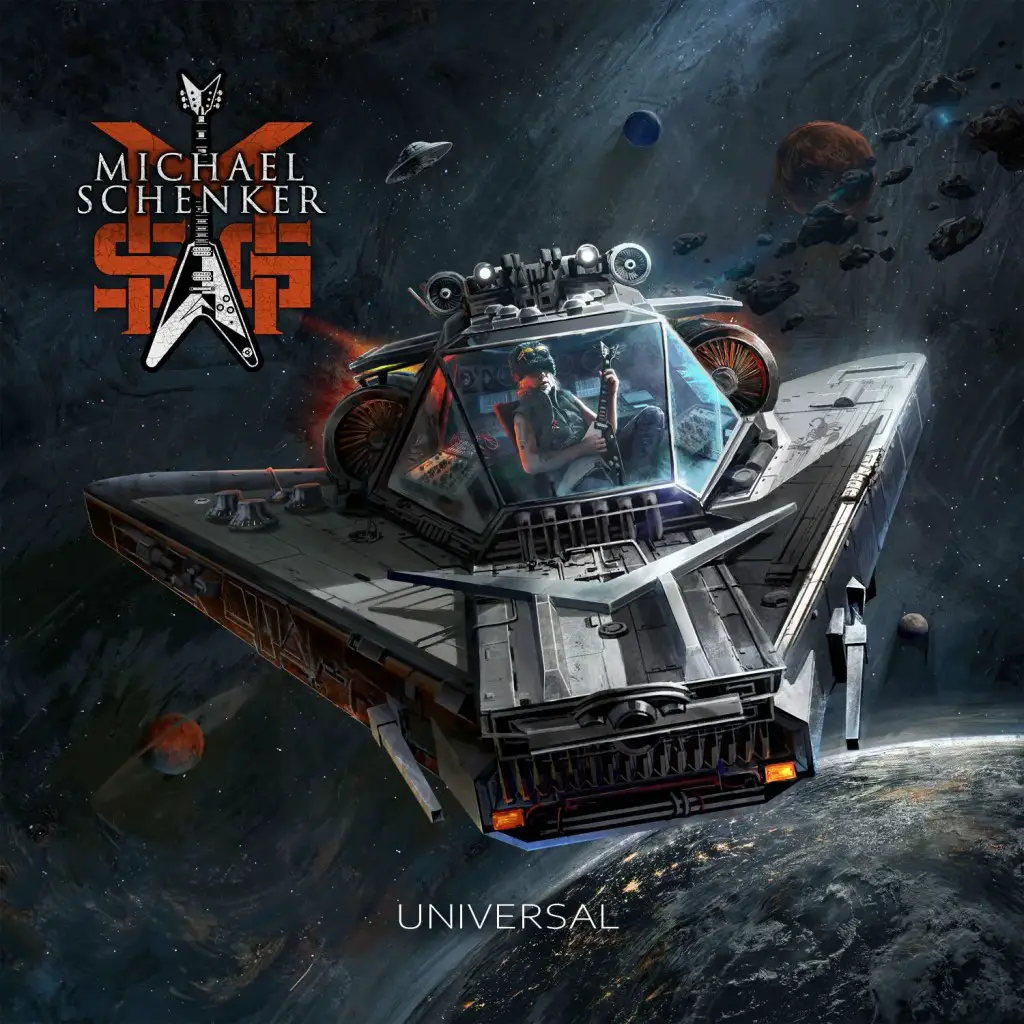
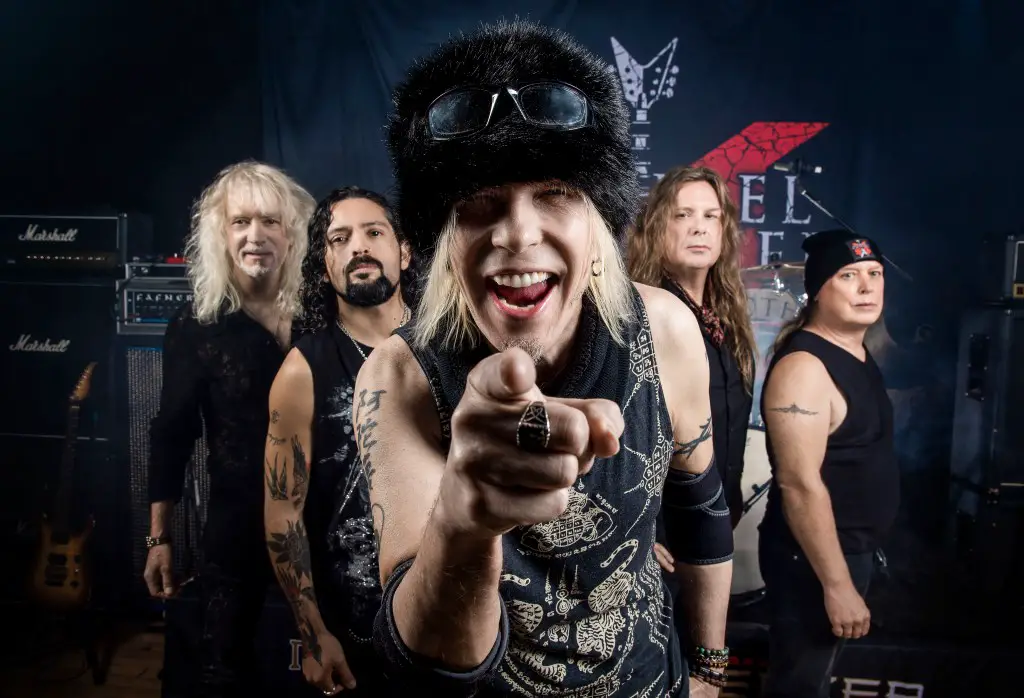
Andrew:
The lead single is “Emergency.” What went into choosing that as the opener?
Michael:
It’s a more progressive song. It is different, and I like that it’s different, because I like to make sure that the songs on my albums are well balanced. I look at it sort of like a book – a good book at that. I never want things to get boring, so when I thought of the first single, I liked the elements of “Emergency.” It’s also that the rhythm is very strange, it changes on and off, but at the same time, it’s very catchy. So, when the record company heard that song, they immediately said, “That has to be the opener.” They liked it, and they, like me, liked that it was progressive, that it was a little different, and that it was catchy. It has all the elements that are important for an opener, and so it ended up as the opener.
Andrew:
You’ve got something of a signature style. With that in mind, going into the recording of Universal, what was your approach to your soloing, and riffing, Michael?
Michael;
I never know how to answer this question, and it’s hard for me to put it into words because I just am myself. When I play, the way I play, there are no technical terms or anything that I can tell you that would help you to understand. I just play, and I feel it, and I see what comes out. All I know how to be is Michael Schenker. I mean, it always depends on each song, if it has minor structure or major structure, I have to play to that, and then I’ll come up with what I come up with.
Andrew:
The production and instrumentation are extremely crisp on Universal. Who do you have supporting you on this record?
Michael:
There is a collaborative approach that has been present for twelve years between Michael Voss and me. Michael Voss and I, we do everything. I write all the music, and I am the motor, I drive everything. And once we have a beginning, it’s easy to continue things, and I’m very good at starting things for us. I also write from within, so that’s very important as I always say to people that my spirit is on a mission to spread and express the joy of music from a place of pure self-expression. So, I have to make sure it starts with me. From there, we have Michael Voss, and he starts getting straight into the lyrics and the vocal melodies. After that, we both put together the guide tracks, so that everybody knows which way we are heading. That’s really what’s important for the rest of the guys who participate in the making of the album, but I also want them to bring their personalities and their own character to the table. It’s important how they play their instrument, or how they sing to be injected into the mix. Basically, we put together a blueprint and then have it executed by the musicians that we pick to play.
As far as who is featured, we’ve got our main vocalist, Ronnie Romero, who I think sang ten songs, and who will also be the frontman for the upcoming tour. As I mentioned, we’ve got Michael Kiske of Helloween, and Ralf Scheepers from Primal Fear on a couple of tracks. Let’s see, there is keyboard player, Steve Mann, drummers Simon Phillips, Brian Tichy, Bobby Rondinelli, and Bodo Schopf. On bass, we have Bob Daisley, Barry Sparks, and Barend Courbois, and of course, Tony Carey as a very special guest on keys as well.
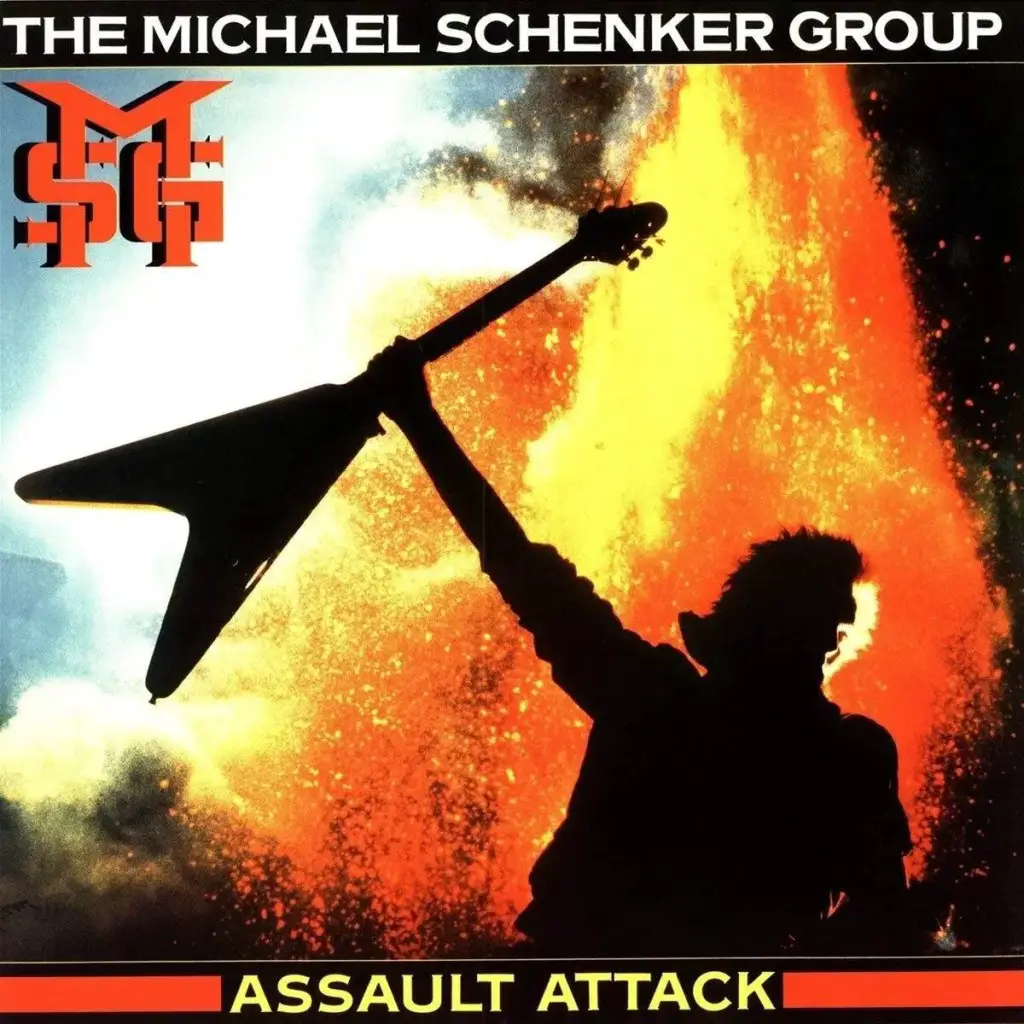
Andrew:
I wanted to go back a little bit now. This year marks the 40th anniversary of classic album, Assault Attack. What do you recall regarding the recording of the record, and that period in general?
Michael:
It was a strange time. It was a strange time because I wanted to do something small. I left UFO and the Scorpions because didn’t feel comfortable in that environment where the business and stuff were larger than life. Peter Lynch called me as soon as he heard I was free, and he wanted me to do big things though, so he was the one who got Simon Phillips, Cozy Powell, and all that. Peter, he was the mastermind behind all of that. At some point, after One Night at Budokan came out, Peter Lynch wanted a different singer. At first, there was David Coverdale, he was in talks with us, and I thought that would be great if he joined, but then he ultimately didn’t want to join the Michael Schenker Group, and I didn’t want to join Whitesnake, so I said, “Let’s go with Graham Bonnet.” Peter said he liked the idea, and at the same time, this was also when Ozzy Osbourne asked me to join his band. And then at the same time, we also lost Cozy Powell, because I think behind my back David Coverdale persuaded Cozy to join him out of spite because I didn’t want to join Whitesnake. So, then we got Ted McKenna. At the same time, our record company was relocating, so we didn’t get any promotion, and because it didn’t get any promotion, the album did not do well commercially, but the album still has become many people’s favorite. It was a really weird time, and everything that happened was so disturbing. With all the different things that were going on, like Ozzy asking me to join and so on, it was just kind of a lot. There seemed to be a very hectic, new strategy of Peter’s, who wanted a new singer and wanted a big album. Nevertheless, we ended up with an album, and it became a musician’s favorite.
Andrew:
You mentioned Ozzy Osbourne. How close were you to joining his band?
Michael:
I was kind of tempted. I had only just left UFO and the Scorpions, and I had already auditioned for Aerosmith. When I was approached by Ozzy, he told me, “You were Randy Rhoads’s favorite guitarist. I want you to join.” It was kind of strange to deal with that situation because Ozzy called me in the middle of the night, and he was obviously very confused and disturbed and begged me to join. I considered it heavily, but something was pulling me away. I had to analyze what was going on. I didn’t quite understand myself. And then I came to the solution, I said to myself, “I cannot do this, because I’m working for self-expression. If I join him, I have to play all these past albums. I have to copy all of them. I have to be on stage. And I have to do something that I just ran away from.” In the end, I had to remind myself, “Michael, you left UFO and you just left the Scorpions. You left for a reason, and for that same reason, you should not join Ozzy.” After thinking about it, that was very clear to me, and I don’t regret the decision for one minute.
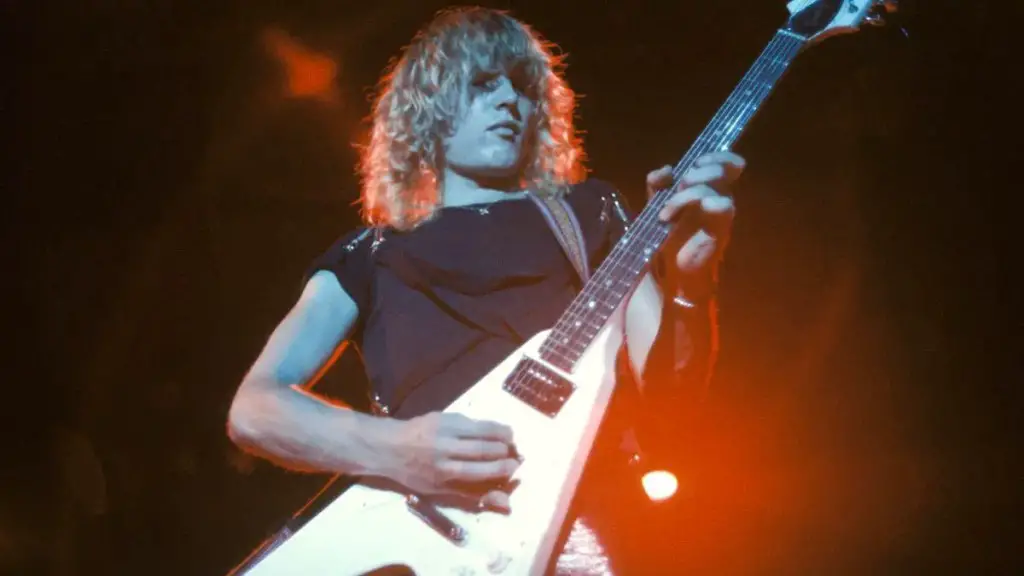
Andrew:
You just touched on your audition for Aerosmith, which is an interesting footnote in your career. I know this is going back a bit, but walk me through how that happened.
Michael:
Well, it was in ’79, and I was in a transitionary period. I had just left UFO and the Scorpions. I was in a transition-type state and a transition-type frame of mind. It was like a little bit of a limbo. I was not quite sure what I needed to do next, and honestly, all of ’79 is kind of a blur. So, the word got out that Aerosmith needed a guitar player, as Joe Perry had just left. My management said, “Michael, you should do this. Let’s have you go out there, and see if it’s a good fit.” So, I went over there, and I was sitting in a hotel room for five days, and nothing happened. That is a good example of what these big bands do – they sit around for hours, and for days, and they don’t do anything and spend money. [Laughs]. Anyway, eventually, there is a knock on my door, “They’re ready for you.” So, I go down, and I went into the rehearsal studio, and of course, everybody was waiting for Steven Tyler. Well, eventually, Steven Tyler comes in, and he was completely out of it and on something, so there was not really any point in rehearsing or doing anything. And to be honest, I was not really straight myself after waiting for five days in a hotel room, so basically, we all split, and I went back to England.
The funny thing was that later on when I was forming the Micheal Schenker Group, I was told by management, “Michael, the Aerosmith rhythm section is available. I want you to go to Boston and rehearse with them, and see about them joining,” and I said, “Alright, I’ll go there,” and I went to Boston. So, I started rehearsing with Joey Kramer, and Tom Hamilton in this huge rehearsal room, it was quite a big rehearsal space, and in distance, there was a door, so the doors swing open, and a guy was coming in, and he’s coming closer and closer, and then suddenly, he turns around and runs out. I said to myself, “Was that Brad Whitford?” My understanding is that he had heard that Joey and Tom were rehearsing with me, and potentially leaving Aerosmith to join my band. I think he wanted to see if it was true that the rhythm section of Aerosmith was rehearsing with Michael Schenker. I guess he saw it, turned around, and ran out of there at lightspeed. At the time, Steven Tyler was in the hospital, and Brad must have run down there and said, “Steven, you must get better soon. Michael Schenker is stealing our rhythm section.” [Laughs]. Anyway, the next thing I know, Joey Kramer and Tom Hamilton were out of the picture, and Aerosmith had reunited with Jimmy Crespo on guitar.
Andrew:
You mentioned that you write all of the music that we hear on your records. To that end, what has been your progression as a songwriter since your early days with the Scorpions and UFO?
Michael:
From my earliest days with the Scorpions, I have always written my own music. As for UFO, I turned UFO into a real rock band. For me, writing music is nothing new, as from day one, I’ve been Michael Schenker. Ever since I started playing guitar when I was nine years old, I have always been myself, and always written my own music. I copied the Rolling Stones and The Beatles – I had to copy somebody – because I was playing in a band when I was only eleven years old. My first job was with the Scorpions when I was eleven years old. Then had my first band when I was twelve. And when I was thirteen or fourteen, I teamed up with Klaus Meine when the Scorpions officially asked me to join. By the time Lonesome Crow and Fly to the Rainbow came out, I was nineteen, and I already had joined UFO. After I joined UFO, I turned them into a real rock band, and we made a record every year. I have personally made over fifty albums in fifty years, and that means that I basically make more than one record a year on average. I’m a spirit on a mission, expressing myself from within, being myself, and doing things the way that Michael Schenker does them – that is my passion. That is what I’ve always done, and that is still what I am all about.
Andrew:
I don’t think anybody can argue with that. Last one, Michael. What’s next for you in all lanes as we move forward?
Michael:
Well, we’re gonna be doing the European tour, which will include Finland, Sweden, Norway, Denmark, the Netherlands, Germany, Switzerland, France, Spain, and Italy. Then the festivals start in France, Belgium, and some other festivals in other places. And then we go on tour in the States from September to November, ending with some dates with W.A.S.P. in Florida. After that, we go to Japan, and we had planned to go to Russia, but that’s obviously not going to happen. As we talk, I think we’re getting offers from South America, and I hope that we for the first time ever that we end up in Australia. We did four shows in the UK already, and perhaps by the time we finish the next phase of this tour, maybe we can offer fans more shows in the UK in support of Universal because we only did those four shows. Beyond that, who knows?
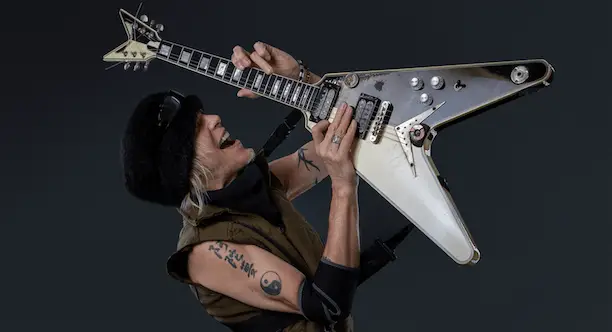
Interested in learning more about Michael Schenker’s latest album, Universal? Hit the link below:
Be sure to check out the full catalog of VWMusic Interviews, by Andrew Daly, here: www.vinylwritermusic.com/interviews

9 thoughts on “An Interview with Michael Schenker”